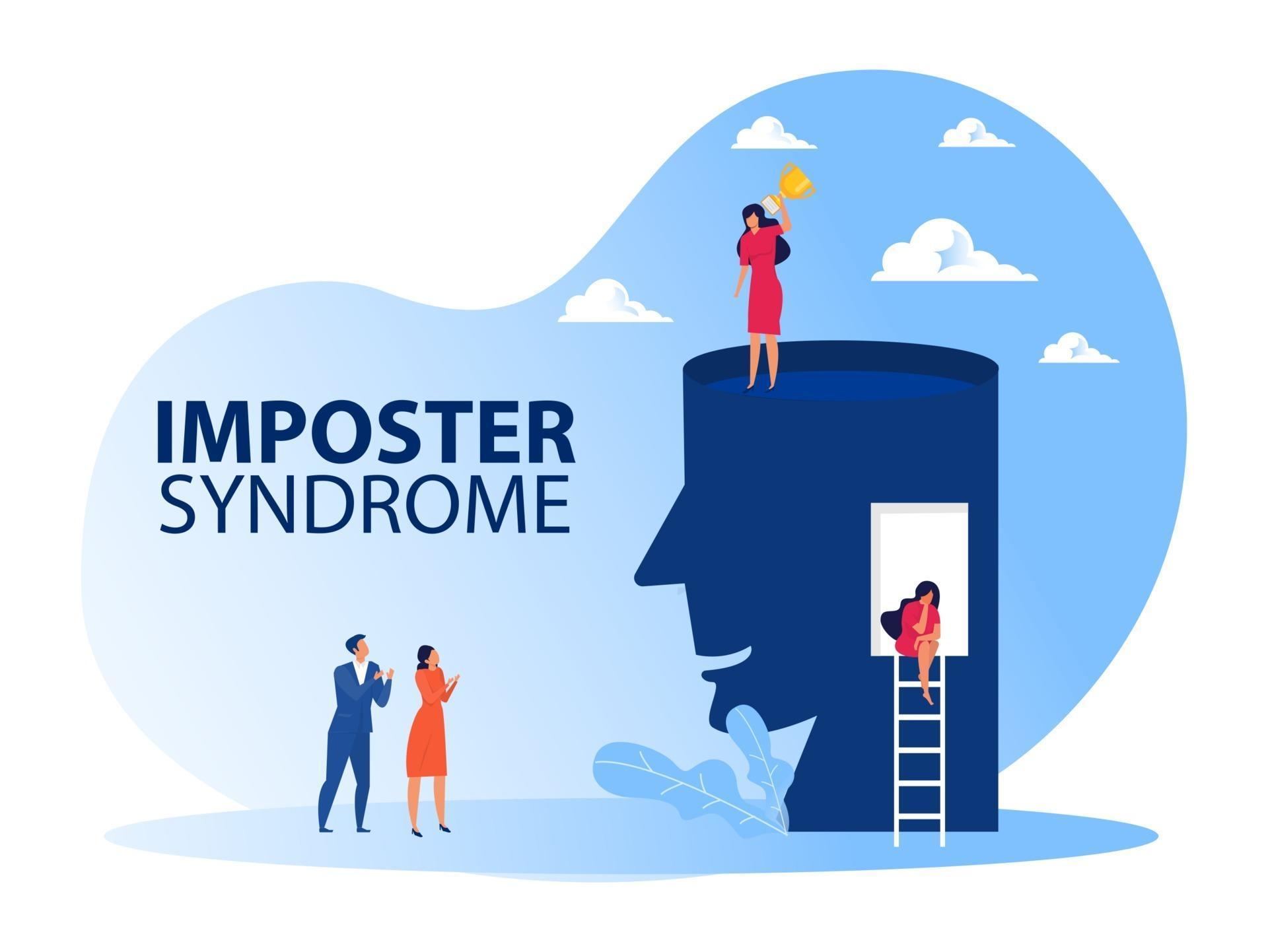Hey there, today I want to talk to you about imposter syndrome. You know that feeling you get when you’re killing it at work, but you feel like you don’t deserve it? That’s imposter syndrome, and it’s a common struggle for high-achievers like you.
But fear not, my friends, because there are ways to overcome imposter syndrome without becoming a narcissist. Let’s dive into some strategies that can help you build a healthy sense of self-confidence.
Recognize your Accomplishments
First and foremost, recognize your accomplishments. When you achieve something big, take time to reflect on it and acknowledge your hard work. Write down your accomplishments and keep them in a place where you can see them often. This will help you build a more accurate perspective of your abilities and boost your self-confidence. My Grandma Parsley always told me this. “Wag your own tail, because no one else will.” So, don’t worry about it making you sound cocky.
Reframe Negative Self-talk
Next up, reframe negative self-talk. Don’t let that inner voice tell you that you’re not good enough or that you don’t deserve your successes. Instead, reframe those negative thoughts in a positive light. Focus on your strengths and abilities, and remind yourself of your past successes. This will help you overcome self-doubt and boost your self-confidence.
Seek Feedback
Third, seek feedback. This can be a tough one, especially if you’re afraid of criticism. But seeking feedback from trusted colleagues or mentors can help you gain a more accurate perspective of your strengths and weaknesses. This can help you identify areas for improvement and build a more realistic view of your abilities. Plus, they’re looking at it from a different lens.
Embrace Failure
Fourth, embrace failure. Failure is a natural part of the learning process, and it does not define your worth or abilities. Instead of letting failure fuel your imposter syndrome, use it as an opportunity to learn and grow. Take time to reflect on what went wrong, and use that knowledge to improve. Here’s the thought, if you’re not falling you’re failing. Read that again. It’s okay to fall and never confuse that with failure.
Practice Self-Compassion
Finally, practice self-compassion. Treat yourself with kindness and understanding, and remember that everyone has flaws and makes mistakes. Instead of being overly critical of yourself, practice self-care and self-compassion. Take time to do things that make you happy, whether it’s spending time with loved ones or pursuing a hobby you enjoy.
Imposter syndrome is a common struggle for high-achievers (or potential high-achievers who get in their own way), but it doesn’t have to hold you back.
By recognizing your accomplishments, reframing negative self-talk, seeking feedback, embracing failure, and practicing self-compassion, you can overcome imposter syndrome and build a healthy sense of self-confidence.
So, keep pushing yourself to be the best version of yourself, and always remember that you are worthy of success and respect.
As a co-founder of The Constance Group, I’m at the forefront of revolutionizing sales and leadership strategies worldwide. Our difference? The proprietary “Sales Funnel©” methodology—an innovative approach that significantly enhances selling processes, complemented by our programs in leadership, negotiation, and sales development.
Our distinct edge lies in our personalized approach. Prior to any keynote or workshop, I personally collaborate with stakeholders and attendees to develop a tailored, impactful program. This commitment goes beyond content delivery; it’s about crafting actionable insights that participants can immediately leverage for real-world impact.
Rooted in behavioral science, our strategies offer profound insights into human behavior, empowering your team to navigate complex scenarios with positive outcomes. Our sessions are designed to be engaging and memorable, mixing potent messages with humor and narratives that not only resonate but also inspire lasting change.



